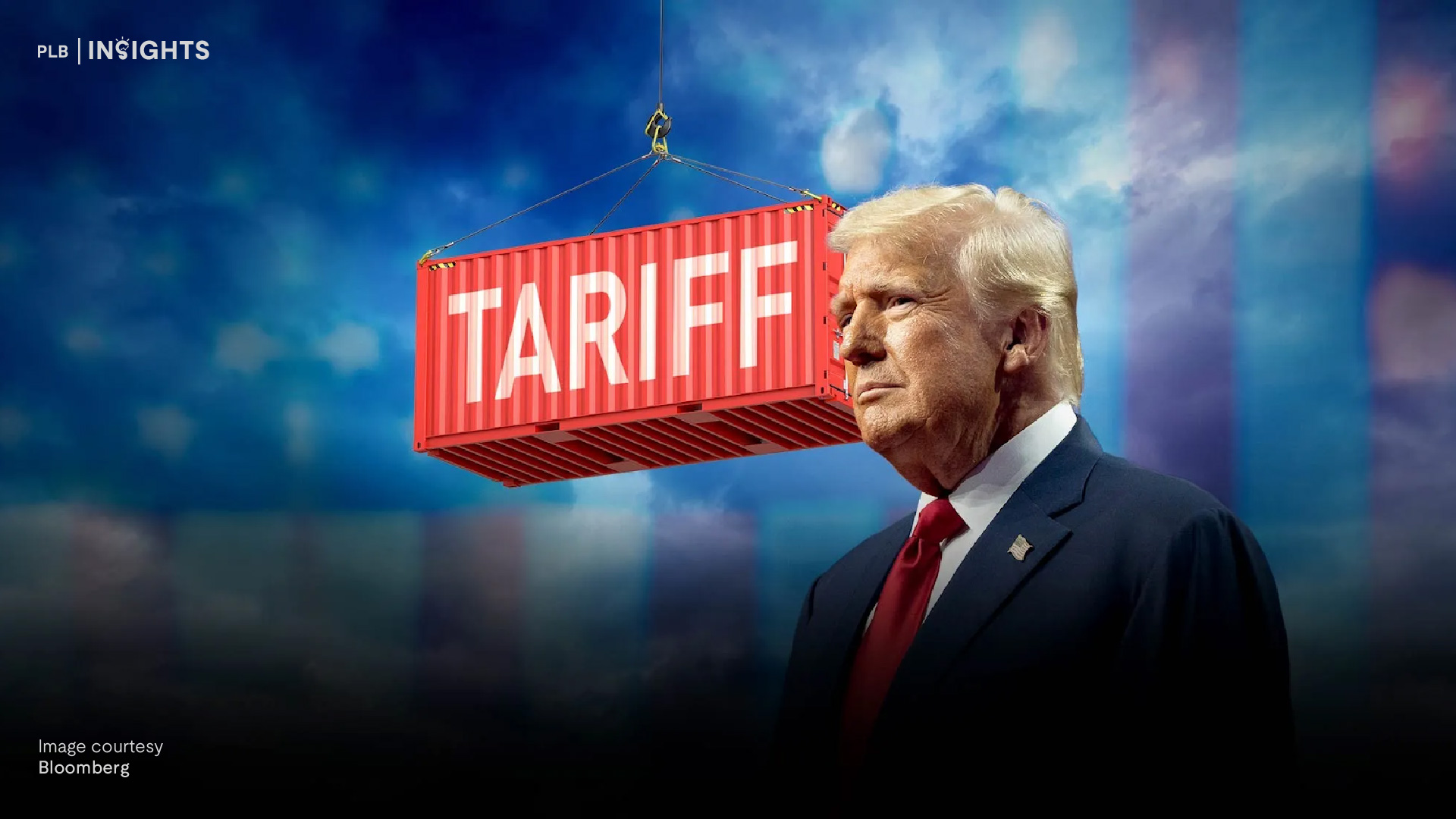
If you’re ahead in the news, you would have seen financial analysts and bankers whispering about the upcoming recession. With their crystal balls suggesting weakness in the financial markets and potential havoc in the coming months, people are getting fearful. Will a full blown recession manifest? Are markets going to crash and burn?
Probably not in the way that “doomers” would suggest. The last thing the U.S. (or any government for that matter) wants is to undo all the post-covid recovery efforts going back two years. Nonetheless, manufacturing a “controlled” recession to cool the economy down might have some prolonged effects.
In this article, we will cover why a recession might occur, how it is different from the past few recessions we have seen, and how it will impact Singapore’s Real Estate market. We examine the primary and secondary effects of how the recession might possibly taper the growth of the Real Estate market and provide some reasons that support a muted recession impact on Singaporean Real Estate.
Doom & Gloom: Recession Coming?

Image courtesy Federal Reserve Board
Economies around the world are reopening. Covid is now less of an unknown threat. Why would a recession be coming? Is it because of the conflict in Ukraine? Rising Oil, Food, and commodity prices? Well, not exactly. The coming recession is likely an artificial one. Induced by the U.S. Federal government to deal with the worryingly high inflation rate. What does all this mean?
Let’s start with how recessions can be “manufactured”. Recessions are generally understood as market downturns, slowed demand of goods and growth of companies. What you need to understand is that growth is correlated with inflation. The more an economy grows, the higher inflation rises. In the U.S., inflation has been going out of control due to the recovery efforts put in place by the U.S. FOMC.
The economy is overheating from the stimuluses handed out and the low interest rates. In order to manufacture an artificial slowdown of the economy, the Fed raises interest rates to reduce the supply of money in the economic system. The Fed also reduces its balance sheet to stop buying securities and stop reinvesting the securities that mature. In general, they slow down the economy by reducing the amount of money circulating in the economy.
A slowdown is one thing, but a recession is another. Sometimes, when the Fed goes overboard, it might artificially trigger a recession based on drastic deflationary measures. We pay attention to T-Bill Yield Curve Inversions to find clues to an upcoming recession. T-Bill Yield Curves plot the yield difference between U.S. treasury bills with different maturities. Basically, if short term bonds give higher yields than long term bonds, the market goes haywire. It triggers short-selling in the market due to poor investor confidence.

Data courtesy St. Louis Fed
T-Bill Yield Curve Inversions are used by economists and policymakers to track the health of the economy and investor confidence. Inverted Yield Curves has accurately predicted the past 4 recessions in the U.S. (shaded grey area). However, the effects are not immediate and there are other factors that affect the prediction.
Generally speaking, recessions manifest more than 12 months after the inversion. The inversion would also need to be sustained over 1-3 months before it acts as an accurate forward indicator. In order to get an even more reliable signal that a recession is imminent, there is usually an inversion on multiple yield curves. Such as the 10 year minus 2 year, 10 year minus 3 months, 10 year minus 5 years, etc. If the yield curve inverts on multiple time frames, it might signal a widespread loss of investor confidence and trigger a sell-off in the stock market.
As of now, the 10 year minus 2 year briefly inverted within the trading day of 29th March Tuesday. While analysts are attributing this to the rate hike announcements by the Fed, this is definitely a situation worth close monitoring. Prolonged or across-the-board yield inversion would spell disaster for the U.S. Economy’s recovery. And with it, the recovery of the global economy. We will continue monitoring the yield curve and other recession indicators over the next few months to keep you in the loop.
How will this (possible) Recession Different?

Image courtesy Deccan Herald
Each recession is technically different. They have their own story and unique historical context. It is almost impossible to tell from the charts alone the exact cause of the recession. For 2008, the Global Financial Crisis (GFC) was sparked by the subprime mortgage crisis, defaults on housing debt collapsing financial institutions. The dot com bubble in the early 2000s, was an example of how an overheated IPO market drove prices to unreasonable levels which eventually led to a huge correction.
In most recent memory, we have the 2020 Covid Pandemic Recession. Driven by lock-downs, supply chain disruptions and the economy taking a hard stop. Each of these examples are relatively different. More importantly, they are rather unexpected “black swan” events. If this upcoming recession were to manifest, it would be a much more “artificial” one.
The Fed plans to slow the economy down just enough to reduce inflation but not too much so that they cause a recession. Analysts call this a “soft landing”. Often, this is hard to achieve, given unexpected news (Ukrainian conflict, new virus strain, etc) or the performance of companies during earnings seasons. This soft landing is going to be much more difficult to achieve today given the number of moving parts and volatile environment of the post-pandemic world.
In this period of economic uncertainty, caution and patience is required. It would be very risky to be All-In on stock investments. In a recession, most sectors get dragged down with the top losers. In this particular cycle, the Technology sector has been hit badly. It would be a mistake to let your personal beliefs cause you to hold on to more losses than you can take.
That being said, keeping inflation under control is the prime motivation behind the Fed’s actions. If they were to see this through, the Real Estate market would have two main consequences. Capital growth will be kept in check to prevent a bubble as disinflation decelerates the price movement. Rising interest rates but slightly higher housing prices would still mean that mortgages will remain expensive despite disinflation.
Will these effects be present in other Asian economies?
How will Singapore’s Real Estate Market React?

Image courtesy ANZA
Singapore is known for being a safe haven for capital. Is this true for every recession? The global financial system (for better or worse) is tied to the fate of the U.S. market. Every Fed decision ripples through the global economy as major investment fund houses and sovereign wealth funds mostly use USD as the reserve currency and treasury bills as the “risk-free” rate. The thought of the U.S. defaulting on its debt is not even within the scope of conventional economists and investors.
While Singapore’s Real Estate Market is certainly not immune to the huge macro-economic changes underway, it is also not very sensitive to it. The Real Estate Market of Singapore is rather stable. Tight demand and supply mechanics help to keep prices up, while reducing volatility (High demand, Low supply). A large part of the demand is also driven by domestic demand. Public housing is entirely driven by the local residents (Singaporeans & PRs). Even the private property sector (Condos & Landed) are driven strongly by a similar demographic.
Thus, the key driver of macro-price changes in Singapore’s property market is mainly local Cooling Measures and the Global Interest Rate environment. Cooling Measures reduces volatility and stabilises market prices by lengthening the holding period of properties (BSD, SSD). It dis-incentivises property owners from making multiple transactions in the market for quick gains. The Global Interest Rate environment would affect the affordability of mortgages in Singapore. Property investors might see returns drop and upper-middle range properties become more unaffordable. This would lower the demand for upper-middle range of property investments.
Overall, Singapore’s property market is expected to stay strong. With strong policies in place to maintain price stability and public housing options (for some part of society) to keep properties affordable, it is unlikely that the real estate market would be badly affected. That being said, high net worth investors might look to exit the stock market under such volatile conditions. Singapore’s property market will appear as a relatively attractive space to invest due to its strong track record as a store of value.
The main group of people that are disadvantaged might be the upper middle class and singles under 35. For this group, private property would get increasingly unaffordable. With mortgages climbing and prices inflating at a decent rate, their incomes may not rise fast enough to cope with the higher prices. In our previous article on interest rates, we calculated that an increase of 0.5% in mortgage rate requires $900 more income in order to keep a loan of $1 million affordable. With the current rate of private property price growth, the cash outlay required for down payment would also be very high. For upper middle class upgraders or singles looking for private property, options would be increasingly limited.
In terms of good news, we do not expect to see a crash in property prices (for reasons explained above). Growth outlook continues to be bullish. We expect the luxury property sector to lead the way into 2023 in terms of property growth based on current growth trajectories.
Closing Thoughts
Due to the artificial nature of the potential upcoming recession, we expect to see limited impact on general real estate price trends. Rising mortgage rates and property prices would mean that some segments of Singapore’s population might find it difficult to afford private property. With more uncertainty in financial markets and volatility rising, Real Estate might become relatively more attractive to high net worth investors. This will further push the growth of Singapore’s luxury property segment.
If you wish to know more about how recession might affect your personal Real Estate journey in Singapore, reach out to us for more information.








